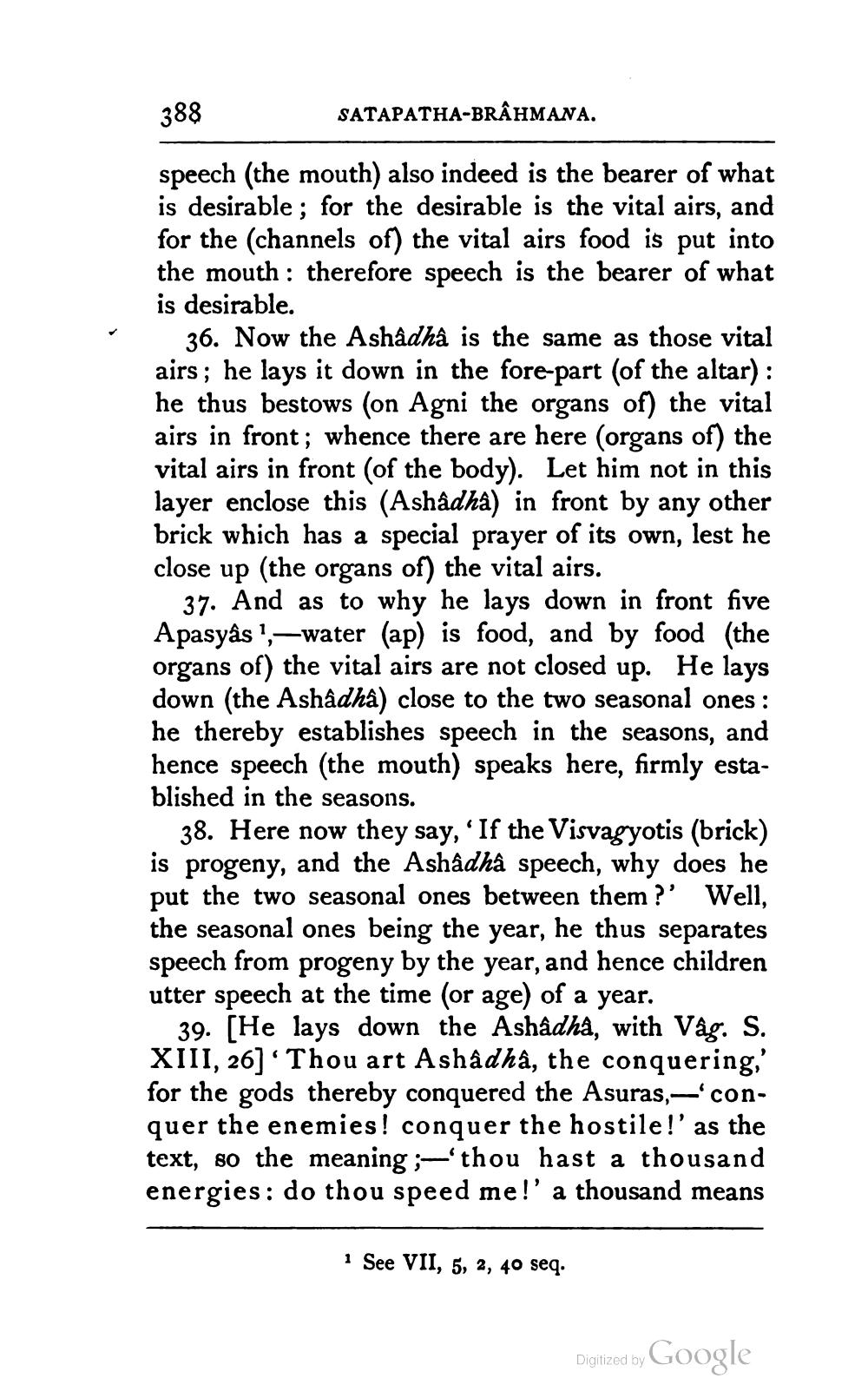________________
388
SATAPATHA-BRAHMANA.
speech (the mouth) also indeed is the bearer of what is desirable ; for the desirable is the vital airs, and for the (channels of) the vital airs food is put into the mouth : therefore speech is the bearer of what is desirable.
36. Now the Ashâdha is the same as those vital airs; he lays it down in the fore-part (of the altar): he thus bestows (on Agni the organs of) the vital airs in front; whence there are here (organs of) the vital airs in front (of the body). Let him not in this layer enclose this (Ashâdha) in front by any other brick which has a special prayer of its own, lest he close up (the organs of) the vital airs.
37. And as to why he lays down in front five Apasyâs !, -water (ap) is food, and by food (the organs of) the vital airs are not closed up. He lays down (the Ashâdha) close to the two seasonal ones : he thereby establishes speech in the seasons, and hence speech (the mouth) speaks here, firmly established in the seasons.
38. Here now they say, “If the Visvagyotis (brick) is progeny, and the Ashâdhå speech, why does he put the two seasonal ones between them ?' Well, the seasonal ones being the year, he thus separates speech from progeny by the year, and hence children utter speech at the time (or age) of a year.
39. [He lays down the Ashâdha, with Vâg. S. XIII, 26] 'Thou art Ashâdha, the conquering' for the gods thereby conquered the Asuras,-'conquer the enemies! conquer the hostile!' as the text, so the meaning ;-'thou hast a thousand energies: do thou speed me!' a thousand means
1 See VII, 5, 2, 40 seq.
Digitized by Google




